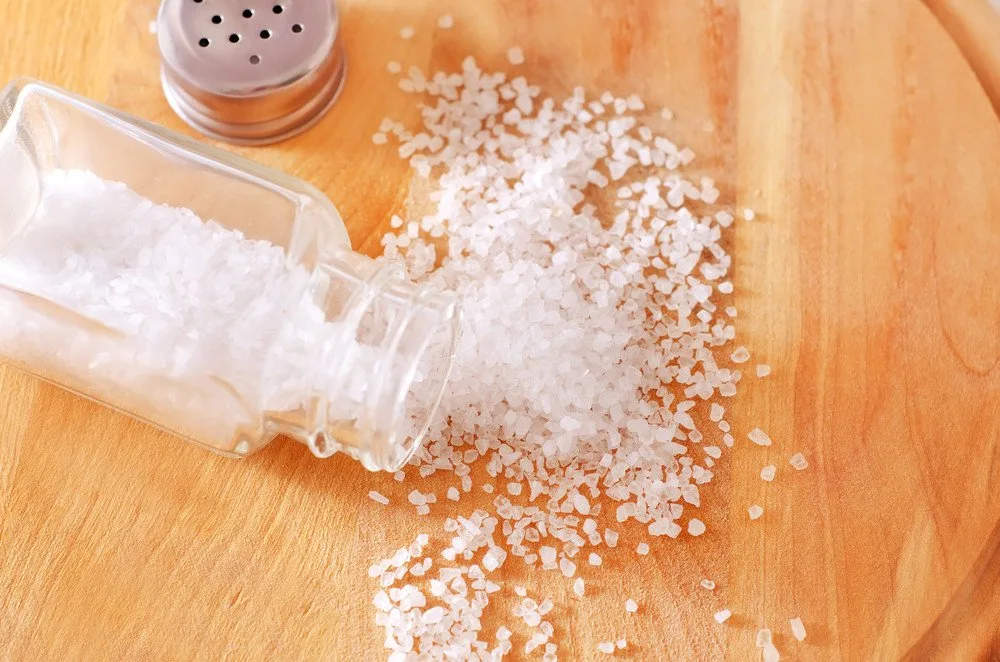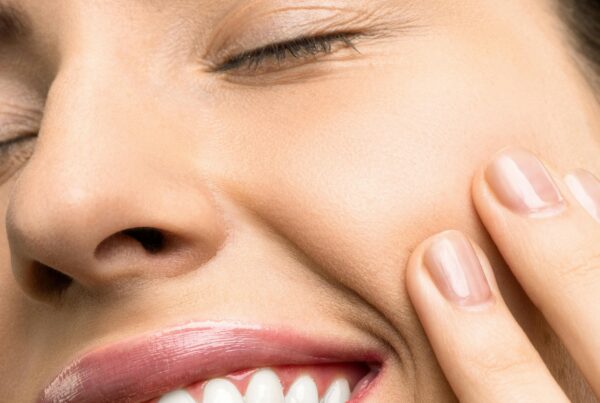We all know that you are what you eat, and we also know the effect that sugar can have on our skin – but what about something less sweet? This week marks World Salt Awareness Week, and with that, dermatologist Dr. Temi Awotedu thinks it’s the perfect time to shine a light on how salt can affect your skin.
“Sodium is an important nutrient in the diet. However, the modern diet contains excessive amounts of salt, which can affect many different parts of the body.” explains Dr. Awotedu, adding that too much salt in your diet can cause negative effects on the skin, including hypertension, edema, bloating and dehydration, “This can make you not look and feel your best.”
How exactly does excess salt affect the skin?
It dehydrates the skin
Once this happens, your skin becomes dehydrated and this results in dry, flaky skin with more pronounced fine lines. What’s more, dehydrated skin can also trigger the overproduction of sebum, which can lead to more breakouts. If that’s not enough, dehydrated skin can also affect the effectiveness of a product on your skin so if you want the product to work well, then you need to make sure that your skin is moisturized and hydrated.
It causes puffy eyes
Sadly, no matter how many hours of sleep you get every night, you may find yourself waking up to puffy eye bags.
“Your face may become puffy and bloated-looking due to water retention caused by too much salt in the diet, and you might develop bags beneath your eyes.” says Dr. Awotedu. Not only is the skin around your eyes more prone to swelling, but due to how thin it is, it’s also more prone to premature aging so it’s important to take care of this area.
Accelerates aging
Collagen is a protein in the body that helps the skin to maintain a youthful and supple appearance. As mentioned, excess salt can dehydrate the skin, and this can affect collagen levels, which then causes your skin to prematurely age.

Photo by Artem Beliaikin from Pexels
Causes breakouts
Sugar isn’t the only thing that can lead to breakouts. According to Dr. Awotedu, skin can become dry and cracked, or it might develop an overproduction of oil as the oil glands try to compensate for the dehydration of the skin. This can lead to skin breakouts.
Therefore, if your skin is already prone to breakouts or acne, then you’ll need to be conscious of the amount of salt that you’re eating.
What can I use instead of salt?
If you’re worried about cutting salt out of your diet because of the flavouring aspect, then the good news is that there are plenty of different ways to season your food. Herbs, lemon juice, olive oil, and balsamic vinegar are all great ways to season your food.
Want to know more?
Unlike salt, we all know that vitamin C has amazing benefits for the skin, but did you know that vitamin C can also help to boost your mood?
Who is Dr. Temi Awotedu?

Dr Temi Awotedu
Dr. Temi Awotedu obtained her medical degree from the University of Kwazulu Natal in 2008 and qualified as a specialist Dermatologist in 2018. She is a Fellow of the South African Colleges of Medicine, in the clinical speciality of Dermatology.
Dr. Temi also holds a Masters in Medicine (Dermatology) degree from the University of the Witwatersrand and a Diploma in Aesthetic Medicine from the prestigious American Academy of Aesthetic Medicine.
She is a member of the South African Dermatology Society, the South African Chapter of the Women’s Dermatological Society, and an associate member of the International Society of Dermatology. Her experience in both clinical and academic Dermatology was gained through years of experience at the largest hospitals in Gauteng.





![women [longevity live]](https://longevitylive.com/wp-content/uploads/2020/01/photo-of-women-walking-down-the-street-1116984-100x100.jpg)










